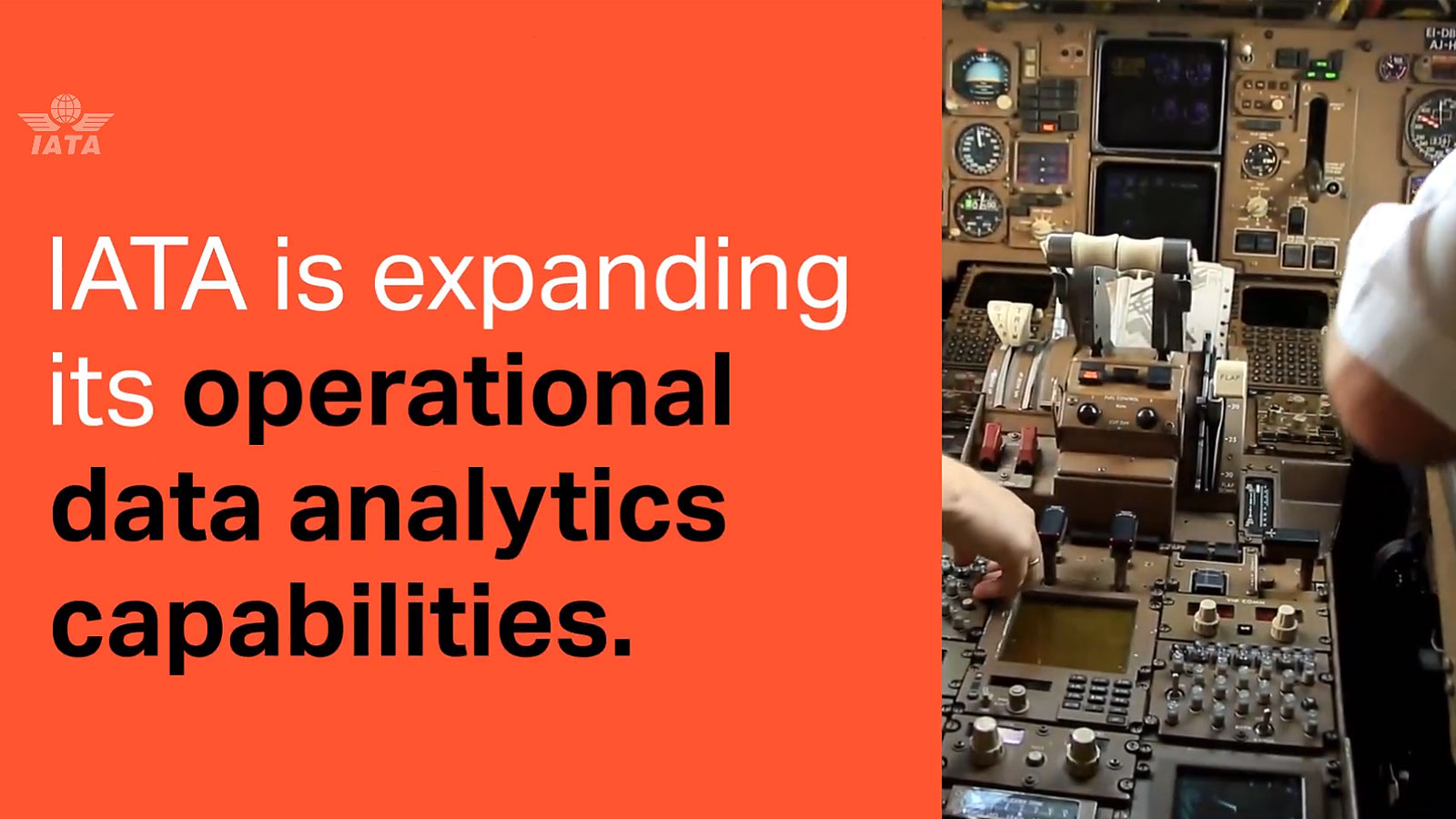On the operational side, data from IATA’s its flagship global safety audit programs – IATA Operational Safety Audit (IOSA) and IATA Safety Audit for Ground Operations (ISAGO) – are included in GADM along with FDX and IDX data and much more.
GENEVA – The International Air Transport Association (IATA) announced that insights from enhancing the analytical capabilities of the IATA Global Aviation Data Management (GADM) program are powering informed decisions to improve safety, operational efficiency and sustainability. The new capabilities take advantage of advancements in big data, machine learning and artificial intelligence.
GADM’s data comes from several sources, including the Incident Data Exchange (IDX) and the Flight Data eXchange (FDX) programs. The latter now comprises data from 15 million flights performed by 7,500 aircraft. The FDX data captured from each flight monitors hundreds of parameters per second, thus making GADM the most authoritative and comprehensive collection of global aviation operational data in the world. Currently 198 airlines contribute data to GADM, this database will grow daily as additional data is collected.
“Enhancing GADM’s capabilities is contributing to data-driven insights and improvements for aviation safety, operational efficiency and sustainability. GADM is the industry’s most comprehensive database. By applying better analytical tools, we are turbocharging its ability to inform critical business decisions. Individual users will be able to better compare their performance to industry benchmarks when making critical business decisions. And, at the industry level, we have been able to more precisely pinpoint operational trends, as well as emerging challenges and opportunities,” said Nick Careen, IATA Senior Vice President, Operations, Safety and Security.
Industry-Leading Insights
Examples of insights gained through GADM’s enhanced capabilities include:
- Identifying emerging safety risks: Through extensive aggregation of GADM’s data, IATA is able to identify emerging safety trends, whether at specific airports, regions, or for certain types of operation. Such analysis will be especially beneficial for airlines exploring new destinations, and for regulators formulating aviation safety strategies. Using GADM data, IATA recently identified GPS signal loss in specific geographies as an emerging safety risk, for example.
- Fuel Efficiency Measurement: Fuel currently represents nearly a third of the operational expense of an airline. Since 2005, IATA has worked with airlines to find fuel saving opportunities and identified average potential fuels savings of 4.4% across flight dispatch, ground operations, and flight operations. Moving forward, IATA will use GADM operational data to enhance the analysis done by its fuel experts and provide industry benchmarks related to fuel efficiency.
- Aircraft Emissions Calculations: Analyzing GADM data is leading to more granular measurement of aircraft fuel burn and, consequently, tracking of CO2 emissions. With analysis of hundreds of data parameters at every second of flight, it is also possible to identify the precise impact of fuel saving operational measures. All of these will help the industry as it moves towards net zero carbon emissions by 2050.
- Predicting Aircraft Performance: Predictive analytics in aircraft performance, particularly in fuel consumption, are essential for strategic decisions. IATA’s advanced deep learning models offer high-accuracy predictions, helping inform decisions on aircraft purchases and strategic network planning.
Focusing on Data
As the trade association for the global airline industry, IATA has long been a trusted partner of industry data, upholding strict governance rules agreed with the airlines. IATA’s business intelligence services, including the flagship Direct Data Solutions (DDS) and AirportIS products, are recognized for the quality and comprehensiveness that they provide for market analysis.
“Data is at the center of more and more of IATA’s activities as the global trade association for airlines. It’s not about storing it for posterity, but rather using data to provide better analysis, and more importantly, solutions to industry issues. Data analysis is a part of our core business and a great opportunity to make aviation stronger,” said Kim Macaulay, IATA Chief Information and Data Officer.
To support its increased focus on data, IATA is staffing-up a newly established a division responsible for data management, strengthening the GADM team and expanding its team of data scientists significantly. The aim is to improve the analytics capabilities offered by IATA to help airlines in their decision-making processes. IATA Consulting has also geared-up to help clients achieve their business goals using GADM and other IATA data collections and expertise.
Vicky is the co-founder of TravelDailyNews Media Network where she is the Editor-in Chief. She is also responsible for the daily operation and the financial policy. She holds a Bachelor's degree in Tourism Business Administration from the Technical University of Athens and a Master in Business Administration (MBA) from the University of Wales.
She has many years of both academic and industrial experience within the travel industry. She has written/edited numerous articles in various tourism magazines.






























































































































































































































